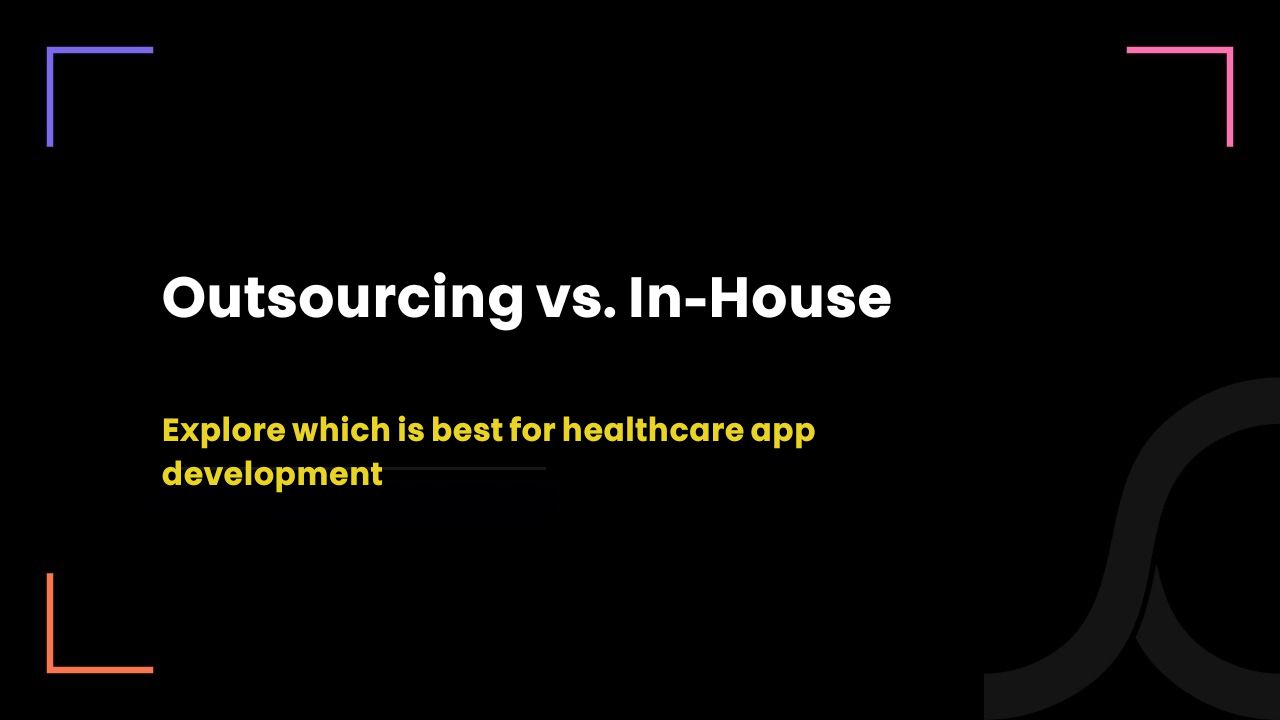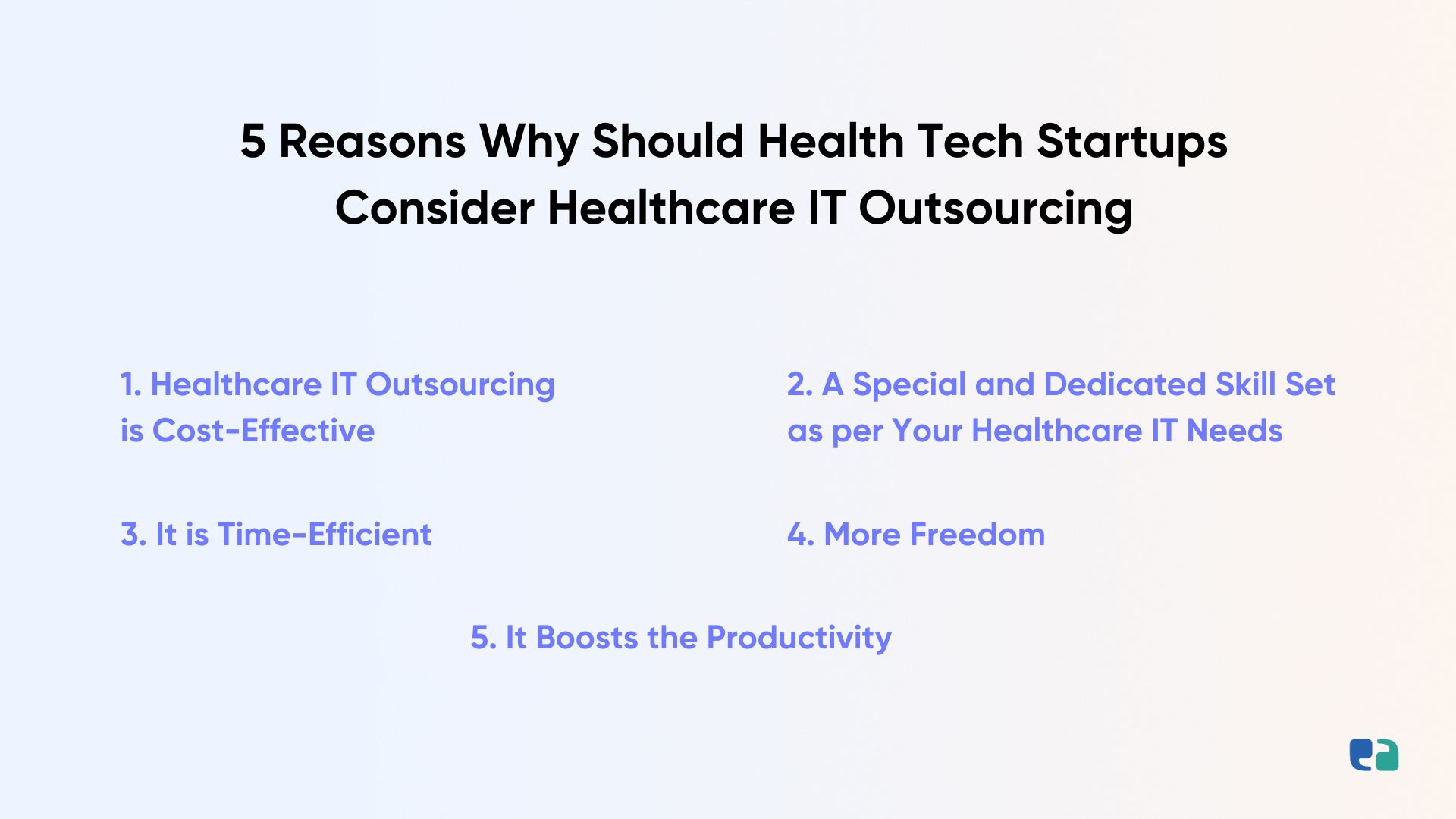Outsource Healthcare App Development: Benefits, Costs, and Best Practices

2 days ago
Healthcare is changing fast, and mobile apps are now a big part of it.
Patients want easy access to their health info, and providers need better tools to manage care.
From scheduling appointments to remote monitoring, mobile apps make everything smoother.
But here’s the big question—should you build your healthcare app in-house or outsource it to experts?
Both options have pros and cons, but outsourcing often comes with major benefits like lower costs, faster development, and access to healthcare IT specialists.
In this blog, we’ll break down why outsourcing healthcare mobile app development can be a smart move.
We’ll cover its benefits, cost factors, and best practices to ensure security and quality.
By the end, you’ll have a clear idea of whether outsourcing is the right fit for your healthcare IT needs.

Why Outsource Healthcare Mobile App Development?
Outsourcing your healthcare app development can be a game-changer. It saves money, speeds up the process, and gives you access to experts who truly understand healthcare IT. Let’s break down the key benefits.
1. Cost Savings
Hiring an in-house team is expensive. You’ll need to pay for salaries, training, office space, and software licenses.
Outsourcing helps you avoid these costs. You only pay for what you need, making budgeting easier. Plus, outsourcing QA (Quality Assurance) alone can cut costs by up to 50%!
2. Access to Healthcare IT Experts
Healthcare apps are not like regular apps. They need to follow strict regulations like HIPAA, PHIPA, and PIPEDA.
By outsourcing, you get access to developers, designers, and compliance experts who specialize in healthcare IT.
They know the industry inside and out, so you don’t have to train an in-house team from scratch.
3. Faster Development & Time-to-Market
Outsourced teams have established workflows and experienced developers who can build and launch your app faster.
They balance quality and deadlines so your app reaches users sooner.
4. Flexibility & Scalability
Healthcare businesses have changing needs. Some months are busier than others.
Outsourcing lets you scale up or down easily without the commitment of hiring full-time employees. You get the flexibility to adapt to your business growth.
5. Focus on Your Core Business
By outsourcing, your internal team can focus on what they do best—growing your business and improving patient care.
Let the experts handle the tech while you concentrate on your mission.
6. Access to Advanced Technology
Technology in healthcare is evolving fast. AI, IoT, remote monitoring—there’s a lot to keep up with.
Outsourcing partners stay updated on the latest trends, so your app gets cutting-edge features without extra investment in new tools or training.
7. Stronger Security & Compliance
Healthcare apps handle sensitive patient data. A single security flaw can lead to data breaches and loss of trust.
Healthcare IT outsourcing companies follow strict security measures, including encryption and access controls, to keep patient data safe.
8. 24/7 Support & Maintenance
With an outsourced team, you get round-the-clock support to fix bugs, update the app, and ensure smooth operation. That means fewer disruptions and a better experience for users.
9. Industry-Specific Knowledge
Outsourcing to a healthcare IT partner gives you valuable industry insights.
They understand doctor-patient workflows, how users interact with medical apps, and what features actually make a difference. Their experience helps avoid mistakes and speed up development.
10. A Fresh Perspective
Sometimes, in-house teams can become too close to a project and miss obvious flaws.
Outsourced experts provide a fresh, unbiased look at your app. They can spot gaps, suggest improvements, and make your app even better.
4 Major Factors to Consider When Outsourcing Healthcare Mobile App Development
Outsourcing can be a game-changer for healthcare IT companies. But to get the best results, you need to make smart choices. Here are some key things to keep in mind:
1. Define Your Project Scope Clearly
Before you start, be clear about what you need. What features should your app have? Who will use it?
Will it integrate with existing systems like EHRs? A well-defined plan helps avoid confusion and costly changes later.
2. Choose the Right Outsourcing Partner
Not all tech companies understand healthcare. Look for a partner with:
- Healthcare app experience – They should know patient workflows and industry challenges.
- Regulatory expertise – Compliance with HIPAA, PHIPA, and PIPEDA is a must.
- A strong portfolio – Check past projects, client reviews, and testimonials.
- Robust security measures – Ask about data protection, encryption, and access controls.
3. Be Aware of Challenges
Outsourcing has its challenges, but you can prepare for them:
- Communication gaps – Different time zones can cause delays. Set up clear communication channels.
- Project management issues – Regular updates and feedback loops keep things on track.
- Data security risks – Ensure your outsourcing partner follows strict security protocols.
4. Consider a Local Health-tech Partner
If your business operates in Canada or the U.S., choosing a local partner has advantages:
- They understand regional healthcare regulations like HIPAA and PIPEDA.
- They are familiar with North American clinical workflows and standards.
- It reduces compliance risks and ensures a smoother development process.
By keeping these factors in mind, you can ensure a smooth outsourcing experience and build a secure, high-quality healthcare mobile app.
Explore the images of the men's health app we recently developed for one of our clients.
The Cost of Outsourcing Healthcare Mobile App Development
Building a healthcare app is a big investment. Whether you hire an in-house team or outsource, understanding the costs is key to making the right decision.
How Much Does It Cost?
Developing a healthcare mobile app isn’t cheap. In 2018, the average cost of a mobile health app was around $425,000—and that was just to launch.
Today, with AI, machine learning, and higher user expectations, costs are even higher.
Depending on complexity, apps can range from $37,000 to over $500,000. And remember, after launch, you’ll still need to budget for updates and maintenance.
How Outsourcing Saves Money
Outsourcing can be a cost-effective alternative to building an in-house team. Why?
- No hiring or training costs – Finding and keeping healthcare IT talent is expensive.
- Lower overhead – No need for office space, software licenses, or equipment.
- Predictable pricing – Most outsourcing companies offer fixed contracts, making budgeting easier.
- Access to the latest tech – The outsourcing team handles updates, so you don’t have to.
Outsourcing QA testing alone can cut costs by up to 50% compared to in-house teams.
What Affects the Cost of Outsourcing?
Several factors impact pricing, including:
- App complexity – More features like EHR integration, AI, or payments mean higher costs.
- Location of the outsourcing partner – North American teams charge more but understand HIPAA, PHIPA, and clinical workflows, reducing compliance risks and costly rework.
- Experience of the outsourcing partner – Experts cost more but deliver higher quality apps faster, which saves money in the long run.
Think of It as an Investment
A great healthcare app isn’t just an expense—it’s an investment. The most successful apps have strong funding behind them.
Choosing the right partner, ensuring compliance, and focusing on quality will give your app a better chance of long-term success.
Finding the Right Path: Outsourcing vs. In-House for Healthcare App Development
When deciding whether to outsource healthcare app development or build an in-house team, the right choice depends on your goals, resources, and long-term vision.
Outsourcing can offer a faster, cost-effective, and compliance-ready solution, while an internal team provides ongoing control and iteration.
Fortunately, you don’t have to choose just one approach.
Many healthcare organizations adopt a hybrid model—outsourcing the initial development to experts while maintaining internal control over updates and scaling.
At SyS Creations, we’ve worked with startups, clinics, and enterprises to build healthcare apps that launch quickly, meet compliance requirements, and seamlessly integrate into clinical workflows.
One of our most sought-after services is our custom healthcare app development roadmap—a process that ensures your app is designed for success, from concept to compliance.
Want to explore how SyS Creations can help bring your healthcare IT vision to life? Let’s connect and discuss your next big step.
